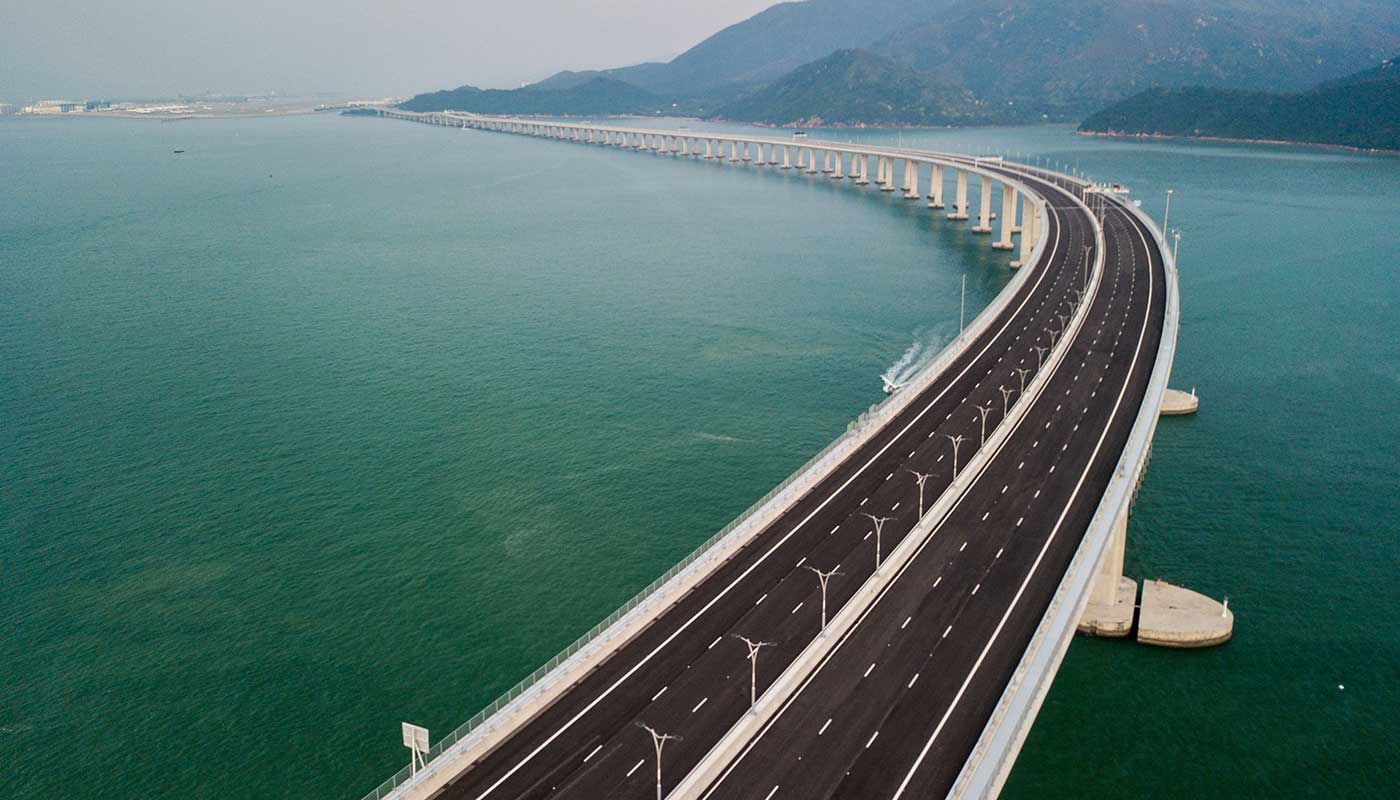China opens world’s longest sea-crossing bridge
President Xi opens 34-mile-long bridge linking Hong Kong and Macau to mainland

A free daily email with the biggest news stories of the day – and the best features from TheWeek.com
You are now subscribed
Your newsletter sign-up was successful
Chinese president Xi Jinping has officially opened the world’s longest sea-crossing bridge, a 34-mile-long structure linking mainland China to the semi-autonomous territories of Hong Kong and Macau.
The project cost about £15.3 billion, and took just over nine years to complete, forming “a key element of China's plan for a Greater Bay Area covering 56,500 square kilometres [21,800 square miles] of southern China”, CNN reports. Beijing sees the area as a potential home-grown rival to Silicon Valley.
The bridge, which will open for traffic tomorrow, is not only the largest of its kind but also has some unusual rules, The National reports. Hong Kong residents can only access the bridge with a special permit from the Chinese authorities, and there are reports that bus drivers will be monitored for fatigue by yawn cameras installed on the bridge.
The Week
Escape your echo chamber. Get the facts behind the news, plus analysis from multiple perspectives.

Sign up for The Week's Free Newsletters
From our morning news briefing to a weekly Good News Newsletter, get the best of The Week delivered directly to your inbox.
From our morning news briefing to a weekly Good News Newsletter, get the best of The Week delivered directly to your inbox.
To allow large ships to pass through the area, a four-mile-long section of the bridge dips down beneath the water.
The project has been controversial in China, due to lengthy delays and industrial accidents that claimed the lives of at least 18 workers, according to the BBC.
Critics have also taken aim at the possible environmental effects the bridge will have on numbers of the critically endangered Chinese white dolphins in the area.
A free daily email with the biggest news stories of the day – and the best features from TheWeek.com
-
 The ‘ravenous’ demand for Cornish minerals
The ‘ravenous’ demand for Cornish mineralsUnder the Radar Growing need for critical minerals to power tech has intensified ‘appetite’ for lithium, which could be a ‘huge boon’ for local economy
-
 Why are election experts taking Trump’s midterm threats seriously?
Why are election experts taking Trump’s midterm threats seriously?IN THE SPOTLIGHT As the president muses about polling place deployments and a centralized electoral system aimed at one-party control, lawmakers are taking this administration at its word
-
 ‘Restaurateurs have become millionaires’
‘Restaurateurs have become millionaires’Instant Opinion Opinion, comment and editorials of the day
-
 Epstein files topple law CEO, roil UK government
Epstein files topple law CEO, roil UK governmentSpeed Read Peter Mandelson, Britain’s former ambassador to the US, is caught up in the scandal
-
 Iran and US prepare to meet after skirmishes
Iran and US prepare to meet after skirmishesSpeed Read The incident comes amid heightened tensions in the Middle East
-
 Israel retrieves final hostage’s body from Gaza
Israel retrieves final hostage’s body from GazaSpeed Read The 24-year-old police officer was killed during the initial Hamas attack
-
 China’s Xi targets top general in growing purge
China’s Xi targets top general in growing purgeSpeed Read Zhang Youxia is being investigated over ‘grave violations’ of the law
-
 Panama and Canada are negotiating over a crucial copper mine
Panama and Canada are negotiating over a crucial copper mineIn the Spotlight Panama is set to make a final decision on the mine this summer
-
 Why Greenland’s natural resources are nearly impossible to mine
Why Greenland’s natural resources are nearly impossible to mineThe Explainer The country’s natural landscape makes the task extremely difficult
-
 Iran cuts internet as protests escalate
Iran cuts internet as protests escalateSpeed Reada Government buildings across the country have been set on fire
-
 US nabs ‘shadow’ tanker claimed by Russia
US nabs ‘shadow’ tanker claimed by RussiaSpeed Read The ship was one of two vessels seized by the US military